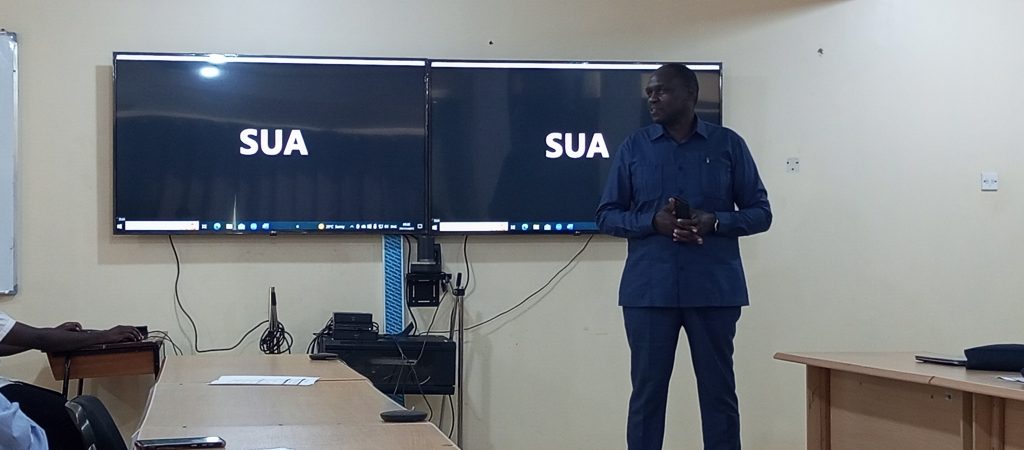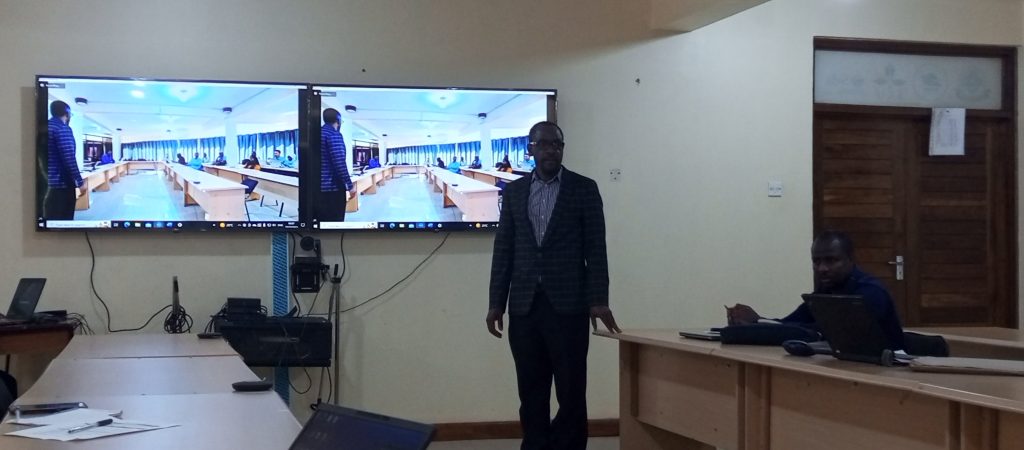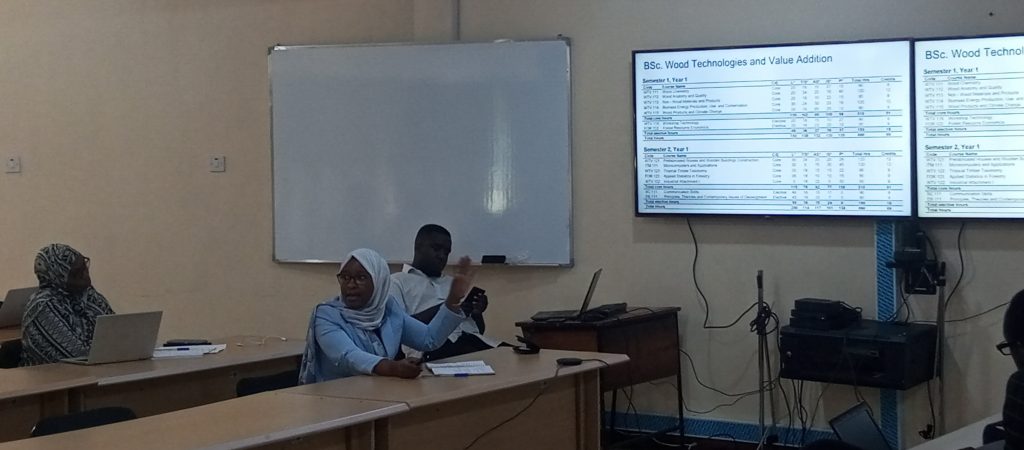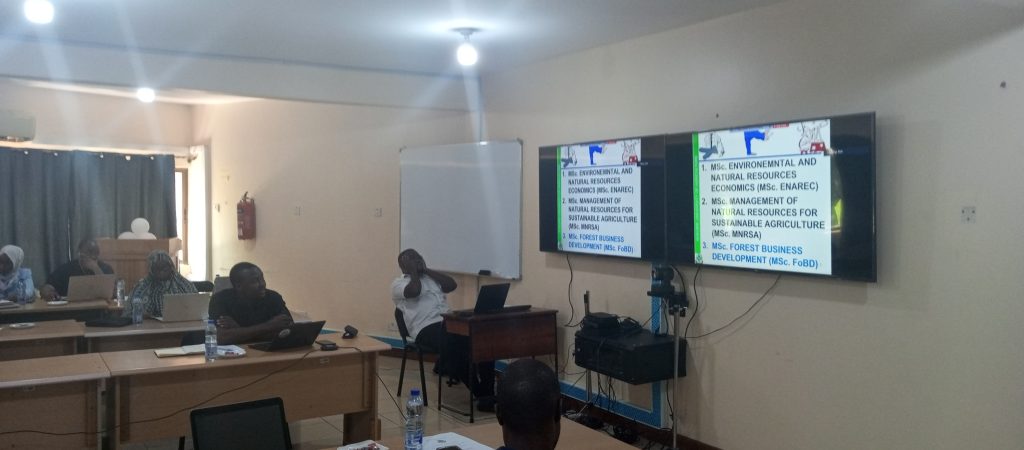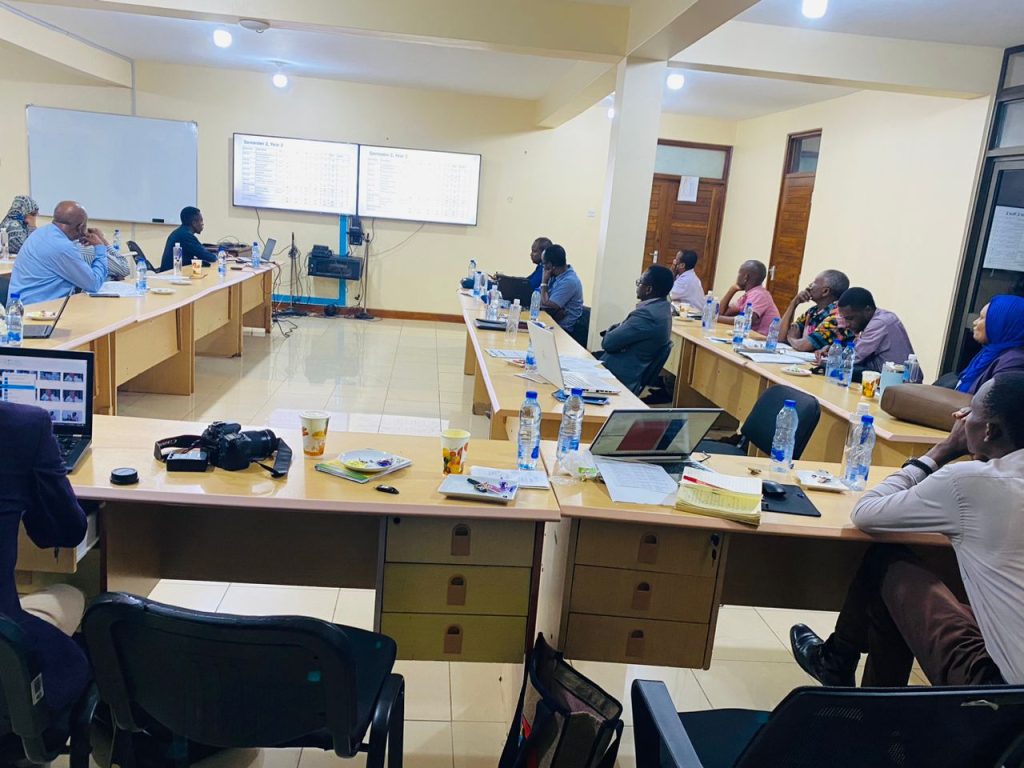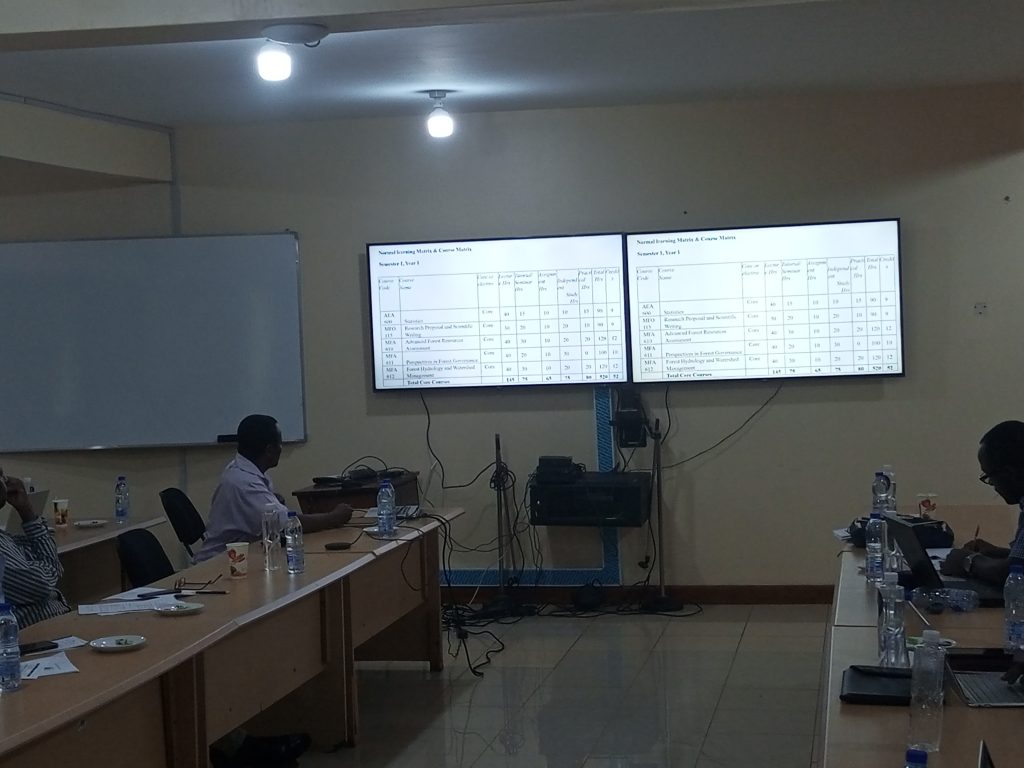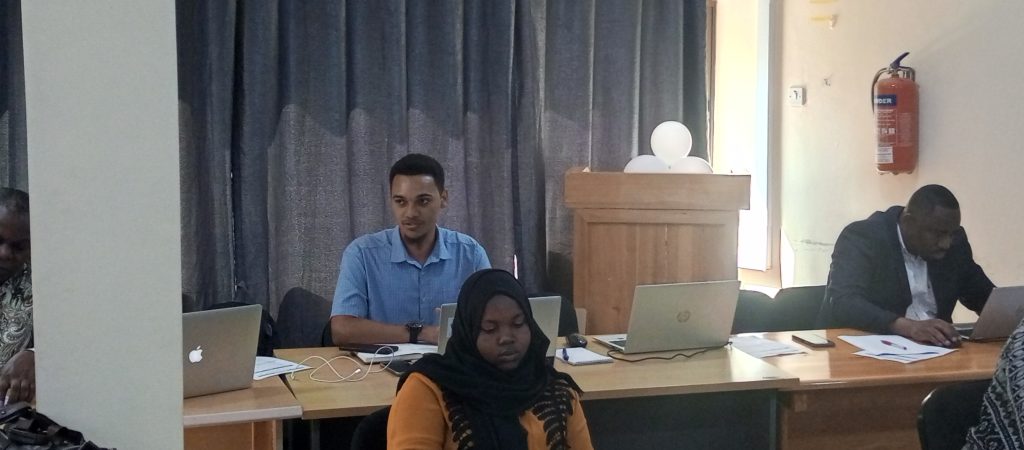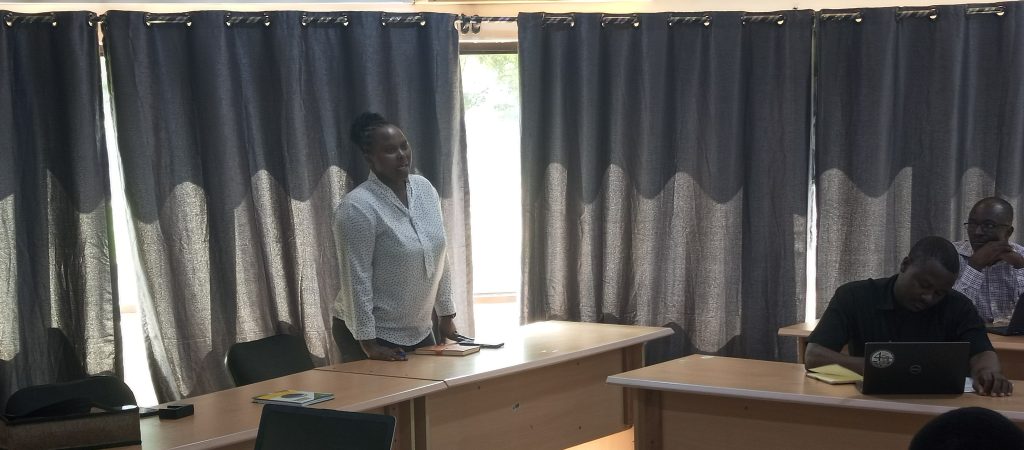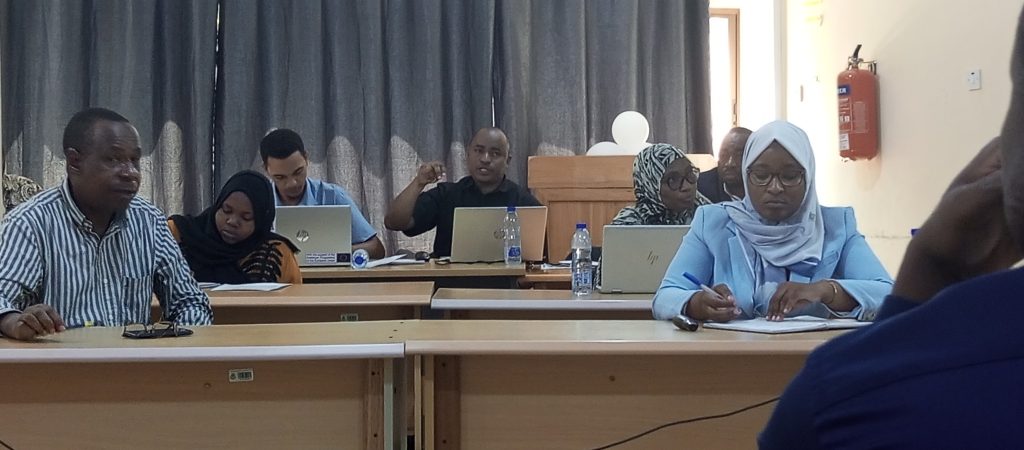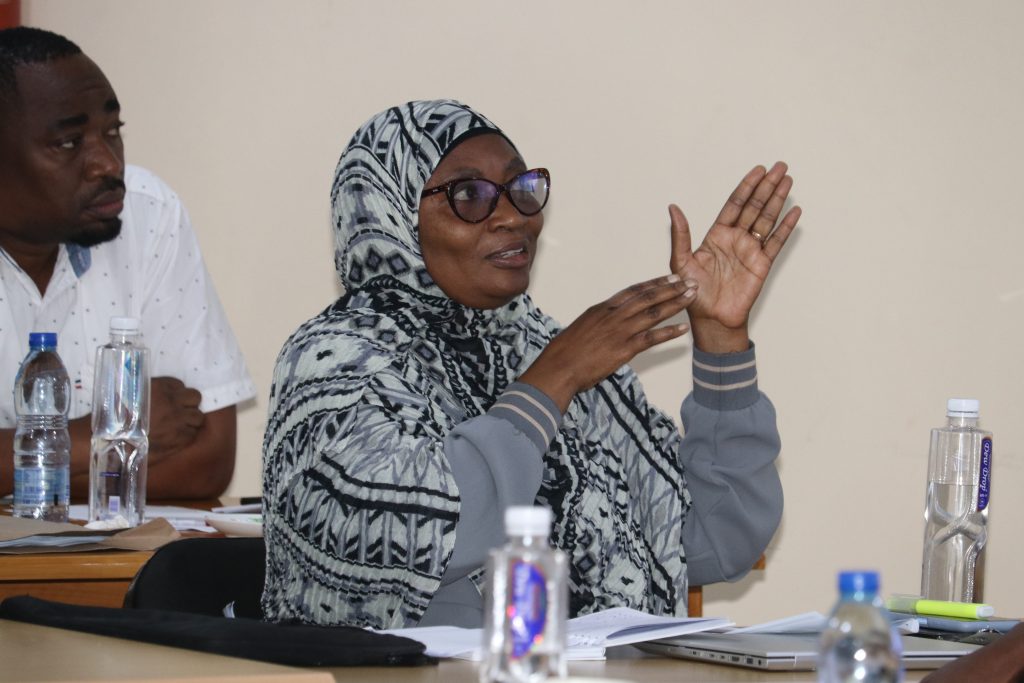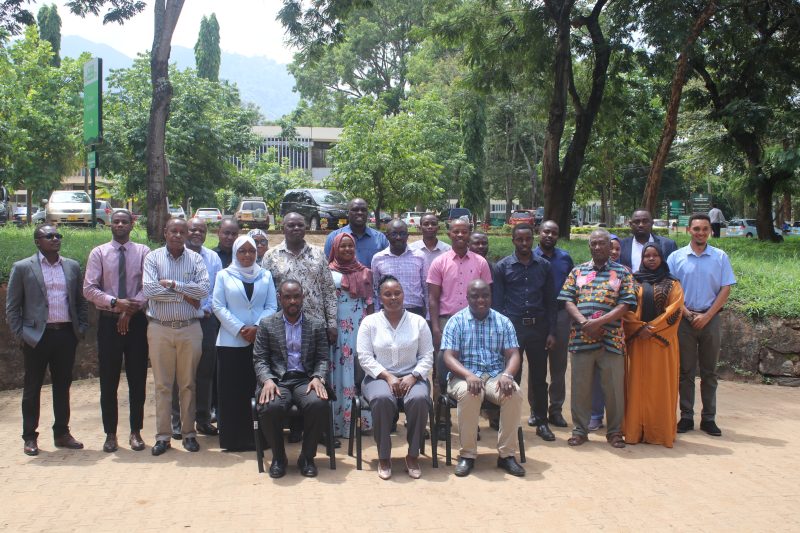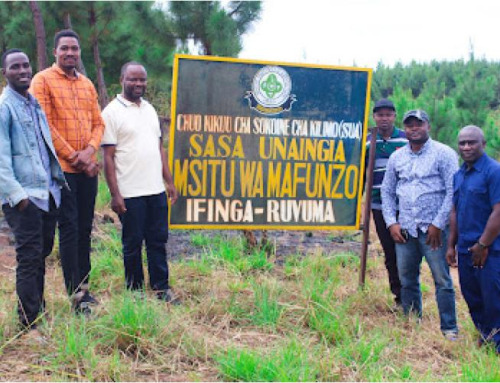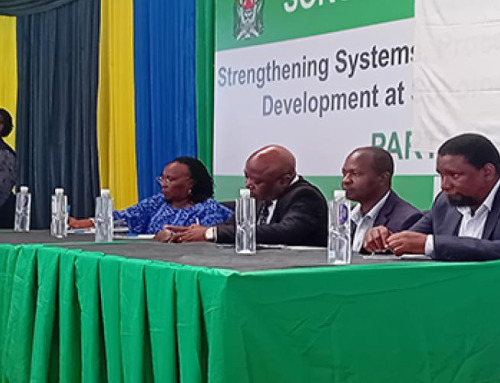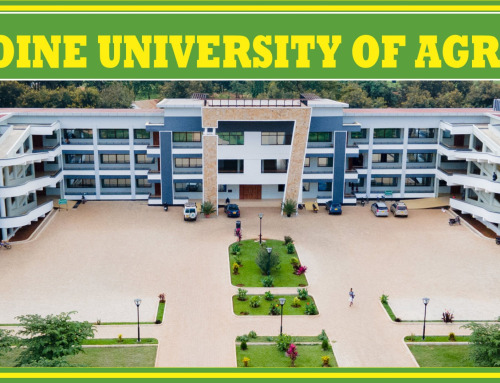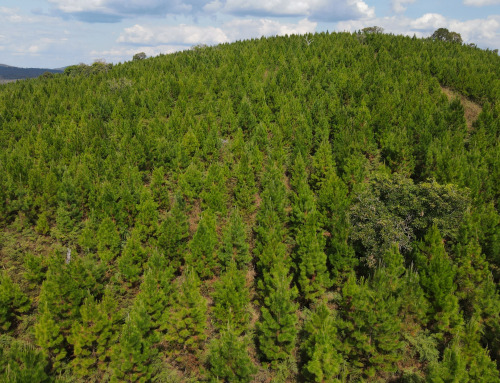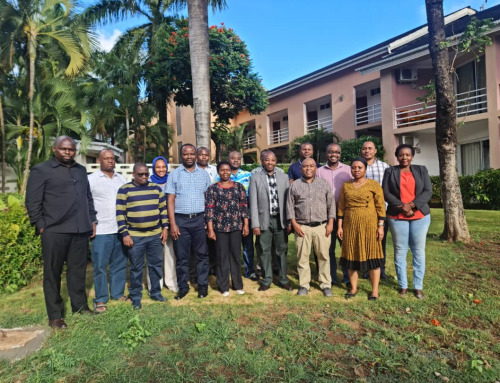The recent curriculum review meeting at Sokoine University of Agriculture (SUA), led by the Principal of the College of Forestry, Wildlife, and Tourism, was a collaborative effort involving key stakeholders. The participants, captured in a group photo with the principal at the center, included representatives from the Vice President’s Office for Environment, Tanzania Forest Research Institute (TAFORI), Tanzania Forest Services Agency (TFS), Tanzania Meteorological Agency (TMA), Mpingo Conservation & Development Initiative (MCDI), and the University of Dar-es-Salaam.
The primary objective of the meeting was to comprehensively review the curriculum to ensure its alignment with current global trends in evolving science and technology. Additionally, the curriculum’s adaptation to meet the dynamic needs of the employment market for graduates was a focal point.
During the session, Mr. Japhet Mwainunu from TAFORI played a pivotal role in the presentation, specifically addressing the BSc. Wood Technology and Value Addition (BSc. WTVA). He advocated for the integration of wood product studies with a focus on issues such as fire hazards and workplace hazards, emphasizing their relevance to machinery activities. Mr. Mwainunu also recommended elevating crucial course programs like wood project planning to core status, recognizing their significant contribution to the industry.
This collaborative and insightful engagement among key stakeholders demonstrates SUA’s commitment to ensuring that its academic programs remain at the forefront of industry demands and technological advancements. The emphasis on practical considerations and industry-relevant insights, as exemplified by Mr. Mwainunu’s suggestions, reflects the university’s dedication to producing graduates who are not only academically proficient but also well-prepared for the challenges of their respective fields.
The meeting host Dr. Mwamwaja speaking with the audience during the opening of the meeting
Guest of Honor, college principal representative of the college of Natural and Applied science inviting all the members to the meeting
Miss Nandera Juma presenting BSc. Wood Technology and Value Addition (BSc. WTVA) curriculum
Dr. Greyson Nyamoga presenting Courses from the department of Forest and Environmental economics
Mr. Barnabas Malila presenting BSc. Forestry curriculum
Dr. Mbeyale presenting the curriculum for MSc. Forest Resource Assessment and Management
Mr. Japhet Mwainunu from TAFORI during the presentation of BSc. Wood Technology and Value Addition (BSc. WTVA), advised integrating wood product studies with the issues of fire hazards and workplace hazards, which are essential for any machinery activities. He also suggested making important course programs like wood project planning as core courses given their contribution to the industry.
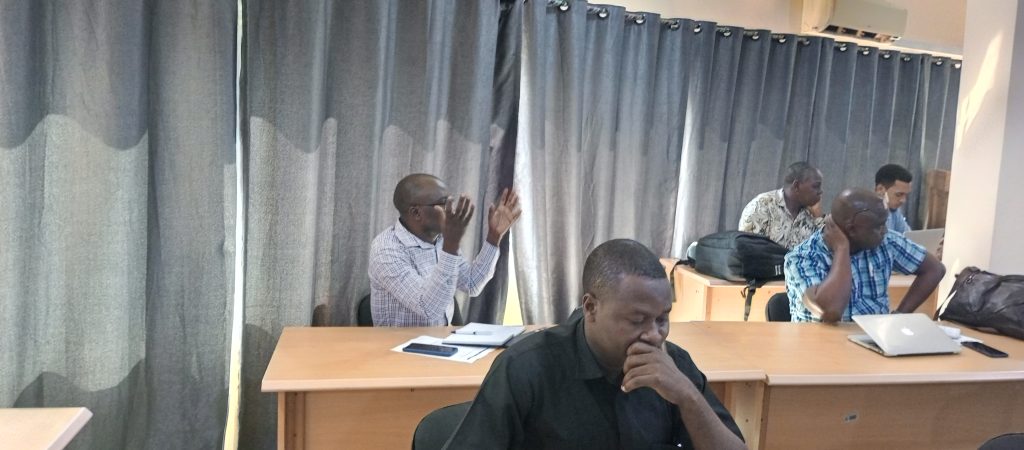
Mr. Japhet Mwainunu from TAFORI giving his views during the presentation of BSc. Wood Technology and Value Addition (BSc. WTVA)
Mr. Sami Madundo responding to one of the questions raised during the meeting
Stakeholders at the curriculum review meeting emphasized the importance of equipping students with skills that make them marketable, such as the ability to write research project proposals that address unemployment and the upgrading of skills in their areas of expertise.
During the curriculum review meeting, stakeholders highlighted the need to minimize the workload for students by reducing the number of courses per semester. The College Principal from the College of Forestry, Wildlife, and Tourism, Prof. Agness Sirima, suggested that students should be allowed to take elective courses from other departments to increase the diversity of understanding and integration of skills.
The Principal, college of Forestry, Wildlife and Tourism speaking during the meeting
Dr. Paul Lyimo, a lecturer from the
Department of Ecosystem and Conservation, emphasized the importance of providing students with a solid foundation in forestry subjects, especially for those pursuing a
Master’s degree in Forestry and related fields. He argued that students should have a clear understanding of where and how wood products come from, as well as the basic issues of tree raising and forest biodiversity, before starting their graduate studies.
Dr. Paul Lyimo, a lecturer from the Department of Ecosystem and Conservation giving his views during the meeting
Dr. Elikana John from TFS highlighted the need to centralize courses that provide a uniform knowledge base for students. Prof. Agness Sirima, the College Principal from the College of Forestry, Wildlife, and Tourism, advised that such courses should be offered by departments with specialized expertise in the subject matter. This approach ensures that students receive consistent and high-quality knowledge across different departments and programs. By doing so, the institution can maintain the quality of education and address potential inconsistencies in the curriculum.
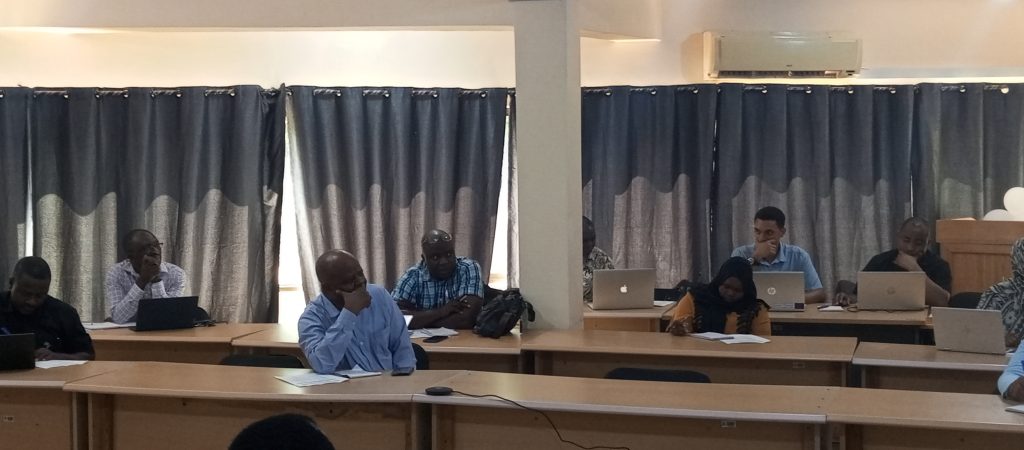
During the curriculum review , it was advised by Joel Fares from MCDI that carbon trading studies should be taught as independent courses for the Department of Forest and Environmental Economics due to their global trend on climate change mitigation. Additionally, it was highlighted that Environmental Impact Assessment course subject should be a core subject due to its importance in the modern society of environmental and social impact assessment of various development projects. The search results provide information on forest carbon trading, carbon markets, forest carbon credits, and forest carbon offset projects. Forest carbon projects offer a practical and credible low-cost option to mitigate CO2 emissions, and forest ecosystems play a critical role in mitigating climate change. Therefore, incorporating carbon trading studies and Environmental Impact Assessment courses into the curriculum can help students develop the necessary skills to address the complex challenges of climate change and environmental sustainability.
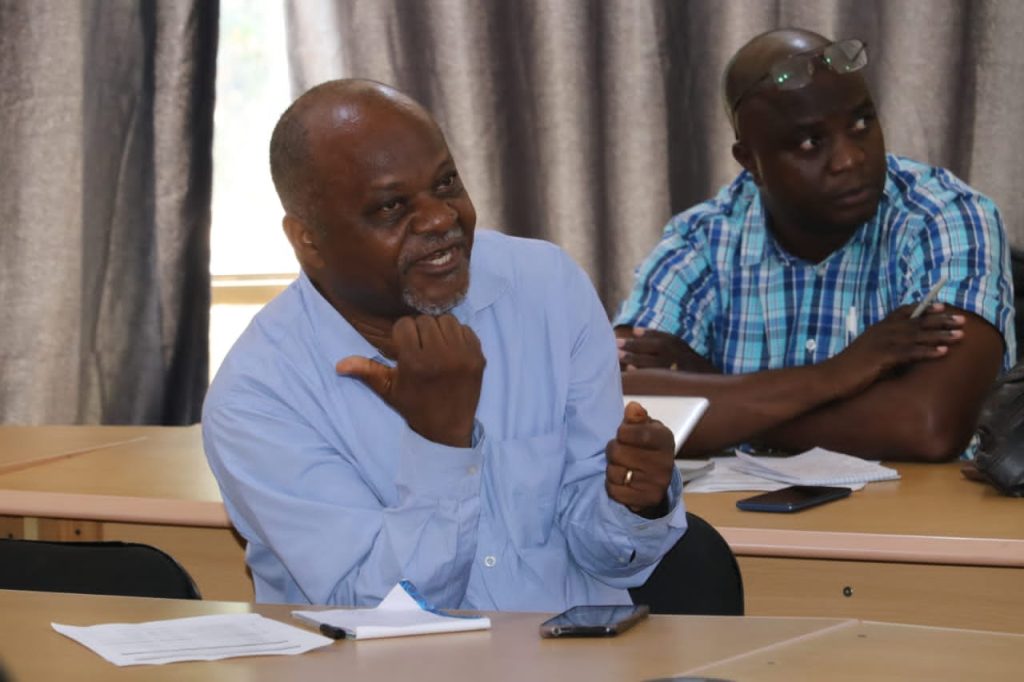
During the curriculum review meeting, Dr. Mkuru Nyarobi the Vice President’s representative from Dodoma advised that the curriculum should focus on having international coverage of issues, as the job market for graduates is becoming increasingly global. The representative also suggested that introductory courses should be taught to build a strong foundation of competence for students. Additionally, offering introductory courses can help students build a strong foundation of competence, which is essential for success in advanced courses and in their future careers.
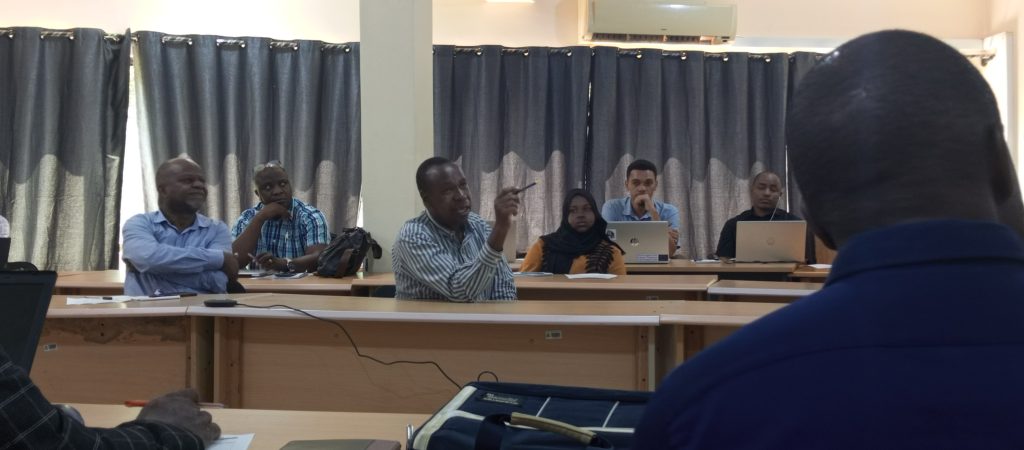
During the curriculum review meeting, Dr. Amina Hamad emphasized the importance of communication skills for undergraduate students, as it is one of the requirements for admission into higher learning institutions, especially abroad. Dr. Greyson Nyamoga added that communication skills courses are essential, as many students struggle during the writing of their research proposals. Effective communication skills are vital to academic success, whether it be written or oral. Communication skills are also important for researchers to effectively communicate their findings to relevant audiences, which can help bridge the gap between academic research and the public. Therefore, incorporating communication skills courses into the curriculum can help students develop the necessary skills to succeed academically and professionally.
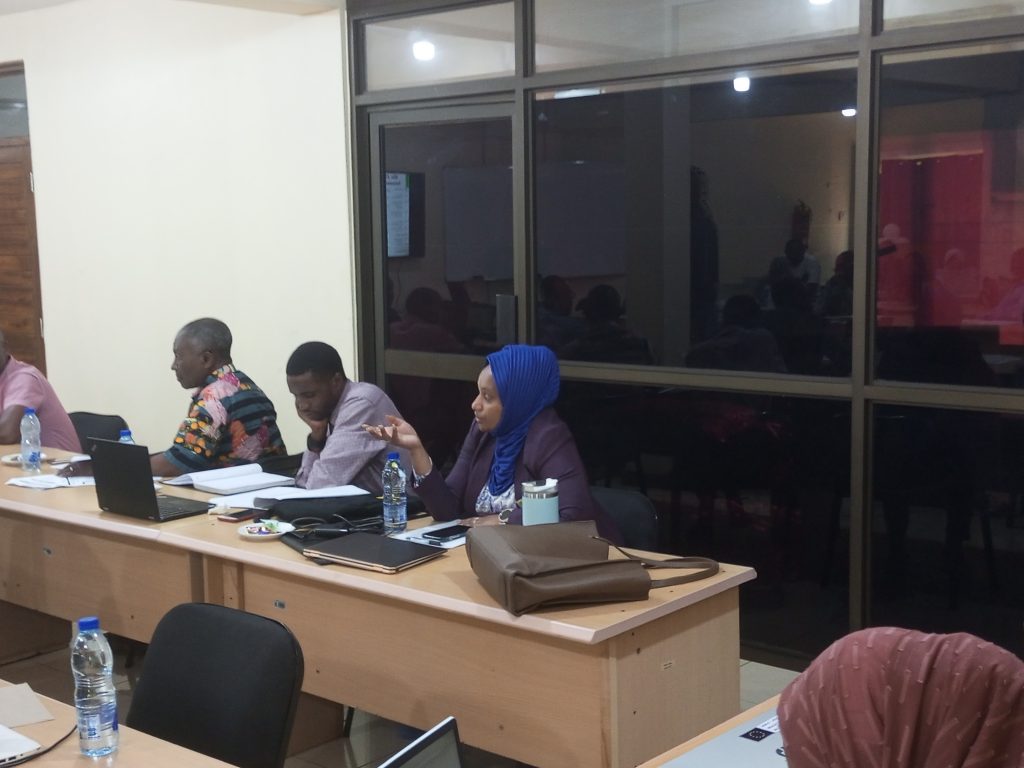
During the meeting, Miss. Hidaya Senga from Tanzania Metrological Authority emphasized the importance of introducing metrology studies and soil science subjects for Environmental Science students. She argued that students should be taught these subjects from the lower level and equipped with modeling tools for good weather forecasting to enhance communication channels by improving the availability of weather information to the people. Additionally, it was suggested that soil science subjects should be taught to Environmental Science students, as environmental toxicity depends mostly on soil science knowledge and skills.
Miss. Hidaya Senga from Tanzania Metrological Authority speaking during the meeting
The Principal from CoNAS highlighted that they are in the process of stating a Masters degree programme due to that Agriculture is the main sector contributing to national economy.
